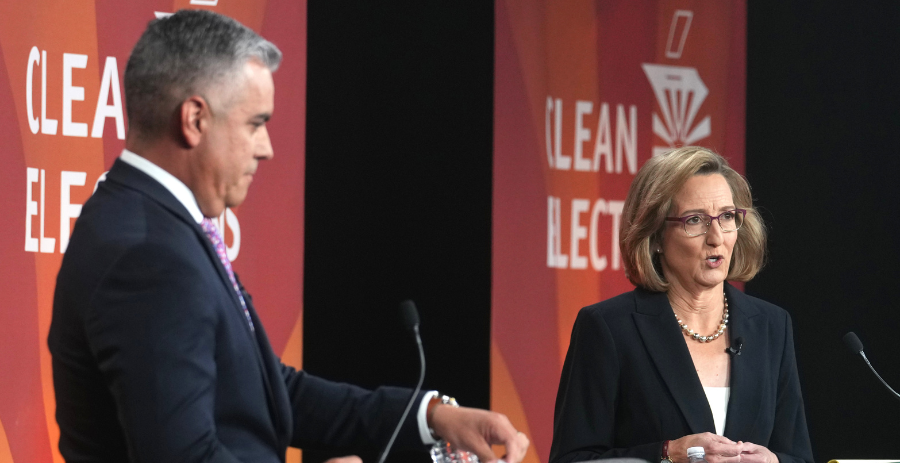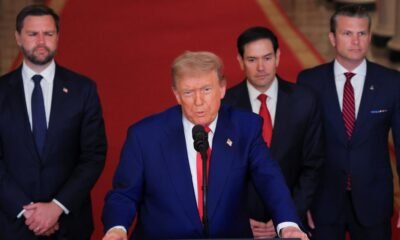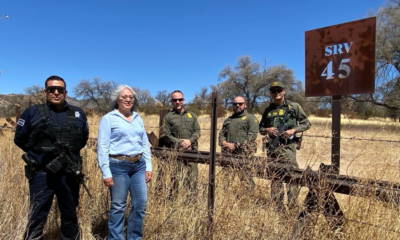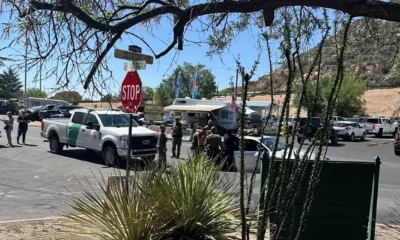2024 election
CD6 Candidates Clash Over Abortion, Border Issues, and Heated Personal Attacks

In a recent debate for Congressional District 6, Democratic candidate Kirsten Engel firmly expressed her support for a ballot initiative aiming to enshrine abortion rights in the Arizona Constitution.
Engel’s comments came during her exchange with Republican incumbent Juan Ciscomani. She highlighted that Arizona narrowly avoided reverting to a restrictive 1864 law that would have banned abortion except in life-threatening situations for the mother.
Currently, the state law permits abortions only up to 15 weeks, without exceptions for cases of rape or incest, a situation Engel labeled as unacceptable.
“Every woman, every person, has to have the freedom to make their own health care decisions, with their doctor and with their family,” Engel stated emphatically, arguing against arbitrary time limits.
She cited instances from other states where pregnant women faced dire situations due to restrictive laws, leading to unnecessary tragedies. “This is not something that we leave to politicians,” Engel insisted, pointing out that Ciscomani, as a politician, lacks the medical expertise to dictate such matters.
In addition to her support for Proposition 139, Engel indicated her intention to advocate for federal legislation aimed at restoring pre-2022 abortion rights, following the Supreme Court’s decision that overturned the 1973 ruling affirming women’s constitutional right to terminate pregnancies.
Ciscomani, contrasting with Engel, voiced his support for the Supreme Court’s ruling, citing the return of decision-making power to individual states regarding abortion legislation. However, his precise stance on where he believes the limits should be remains ambiguous.
“I trust women,” he declared, while simultaneously stating that he cherishes new life, and he does not support extreme measures on either side of the issue.
Ciscomani explicitly rejected a federal ban on abortion and expressed his opposition to a recent Arizona Supreme Court ruling that would have reinstated the 1864 law. He acknowledged that the current 15-week ban is problematic due to the absence of exceptions for rape or incest.
Although he identifies issues with Proposition 139, Ciscomani explained its provisions for allowing abortions up to fetal viability, a stage typically deemed to be between 22 and 24 weeks. He urged voters to consider the implications of the proposition compared to existing laws.
While discussing the need for public input on the matter, Ciscomani deflected from answering how he would personally vote, stating he respects the voters’ decision.
The debate also veered into personal territory, with Ciscomani critiquing Engel for her residency. Engel acknowledged her proximity to the district, emphasizing her legislative experience in the area.
Conversely, Engel accused Ciscomani of facilitating foreign land acquisitions during his tenure under Governor Doug Ducey, which she argued led to unsustainable water use for agriculture.
As the dialogue shifted to border security, Engel highlighted the failure to pass a bipartisan proposal that aimed to improve security measures. She criticized Ciscomani for rejecting a deal that had garnered cross-party support.
Ciscomani contended that Engel’s claims were misleading, asserting that his evaluation of the proposed legislation identified several shortcomings that warranted further revision.
Despite endorsing aspects of border security, he pointed out that the proposed plan did not reach the voting stage in Congress, attributing the setback to its political dynamics.
Engel countered that, as an elected representative, Ciscomani had a responsibility to seek amendments rather than turning away from the proposal.
The debate underscored the contrasting views between the two candidates, particularly on critical issues impacting Arizona’s legislative landscape.

















